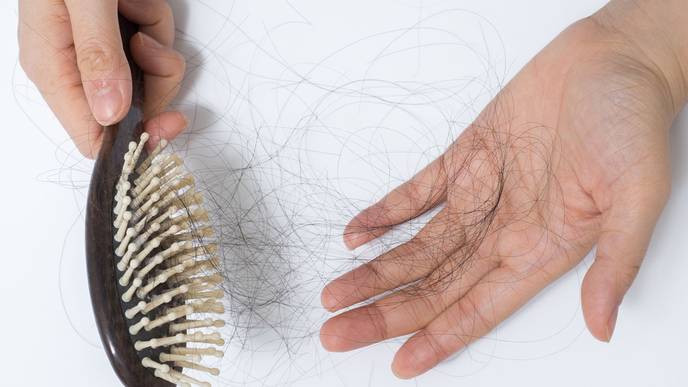ReachMD
Be part of the knowledge.™Maternal Alopecia Areata Linked to Autoimmune, Atopic, Thyroid, & Psychiatric Disorders in Offspring

Maternal alopecia areata is associated with the development of comorbid conditions in offspring, such as autoimmune or inflammatory, atopic, thyroid, and psychiatric disorders, according to authors of a study published in JAMA Dermatology.
Previous research has shown an association between alopecia areata and autoimmune and psychiatric disorders. In a retrospective population-based birth cohort study, the authors investigated risks for autoimmune, inflammatory, atopic, thyroid, and psychiatric disorders among offspring of mothers with alopecia areata. Participants were identified using the birth registration database linked with Korea’s Nationwide Health Insurance Service database. The analysis was conducted from July 2022 to January 2023 and included all newborns born between 2003 and 2015 to mothers with 3 or more clinic visits for alopecia areata as defined by the International Classification of Diseases, Tenth Revision (ICD-10) code L63. The offspring of mothers with alopecia areata were matched with offspring born to mothers without alopecia areata,
The primary outcome of the study was the incidence of alopecia areata, alopecia totalis/universalis (AT/AU), vitiligo, psoriasis, inflammatory bowel disease (IBD), rheumatoid arthritis (RA), atopic dermatitis (AD), allergic rhinitis (AR), asthma, hyperthyroidism, hypothyroidism, Graves disease, Hashimoto thyroiditis, attention-deficit hyperactivity disorder (ADHD), mood disorder (unipolar/bipolar disorder, depressive disorder, and other mood disorder), and anxiety disorder. The occurrence of these diseases was measured in newborns from birth to December 31, 2020. In total, the authors examined data from 67,364 offspring born to 46,352 mothers with alopecia areata and 673,640 controls born to 454,085 unaffected mothers.
Compared with the offspring of mothers without alopecia areata, the offspring of mothers with alopecia areata were found to be at higher risk for autoimmune and inflammatory disorders, such as alopecia areata (adjusted HR [aHR], 2.08; 95% CI, 1.88-2.30), AT (aHR, 1.57; 95% CI, 1.18-2.08), and vitiligo (aHR, 1.47; 95% CI, 1.32-1.63). They were also at increased risk for atopic disorders, such as AD (aHR, 1.13; 95% CI, 1.10-1.15) and AR (aHR, 1.04; 95% CI, 1.02-1.07). The offspring had a significantly higher risk for asthma (aHR, 1.03; 95% CI, 1.01-1.05); hypothyroidism (aHR, 1.14; 95% CI, 1.03-1.25); and psychiatric disorders, including ADHD (aHR, 1.16; 95% CI, 1.10-1.21), mood disorder (aHR, 1.13; 95% CI, 1.07-1.20), and anxiety disorder (aHR, 1.14; 95% CI, 1.07-1.20). This association remained significant after the authors adjusted for potential confounding factors, including maternal age, maternal history of atopic disorders, and autoimmune disorders.
“
[E]xposure to maternal AA was associated with increased risk of autoimmune, inflammatory, atopic, thyroid, and psychiatric disorders in offspring.
Study limitations include the reliance on a single racial/ethnic population, short observation period, and limited access to parental data.
The authors concluded, “[E]xposure to maternal AA was associated with increased risk of autoimmune, inflammatory, atopic, thyroid, and psychiatric disorders in offspring.” They added, “[I]t is not necessary to routinely screen for all comorbidities in offspring born to mothers with AA; however, clinicians should be aware of the potential comorbid conditions.”
Disclosure: This research was supported by a National Research Foundation of Korea (NRF) grant funded by the Korean government (MSIT) (No. 2017R1A5A2015369). Please see the original reference for a full list of disclosures.
Recommended
Assessing the Asthma Management Guideline Updates
The Drug ReportAssessing the Asthma Management Guideline Updates



Facebook Comments